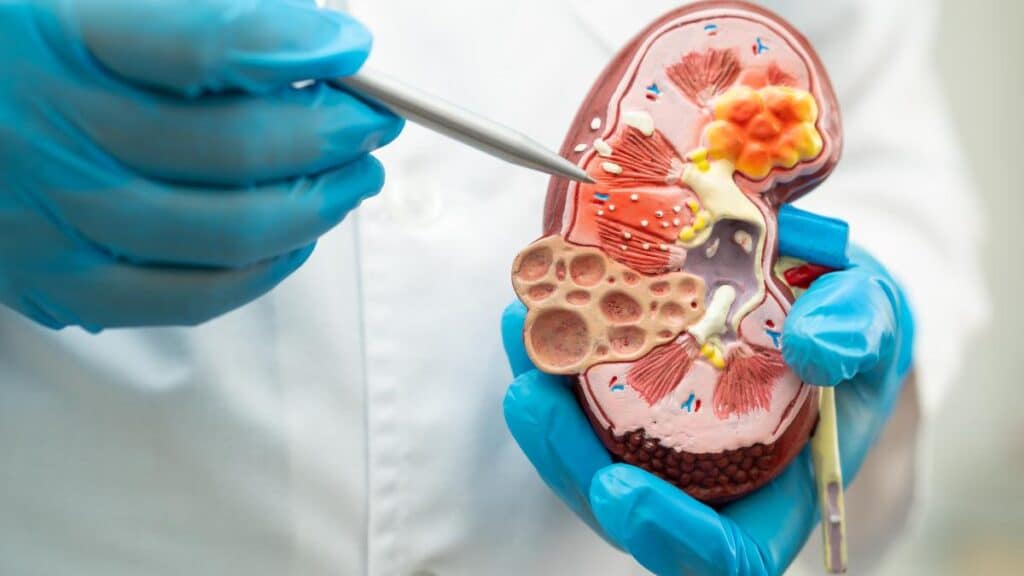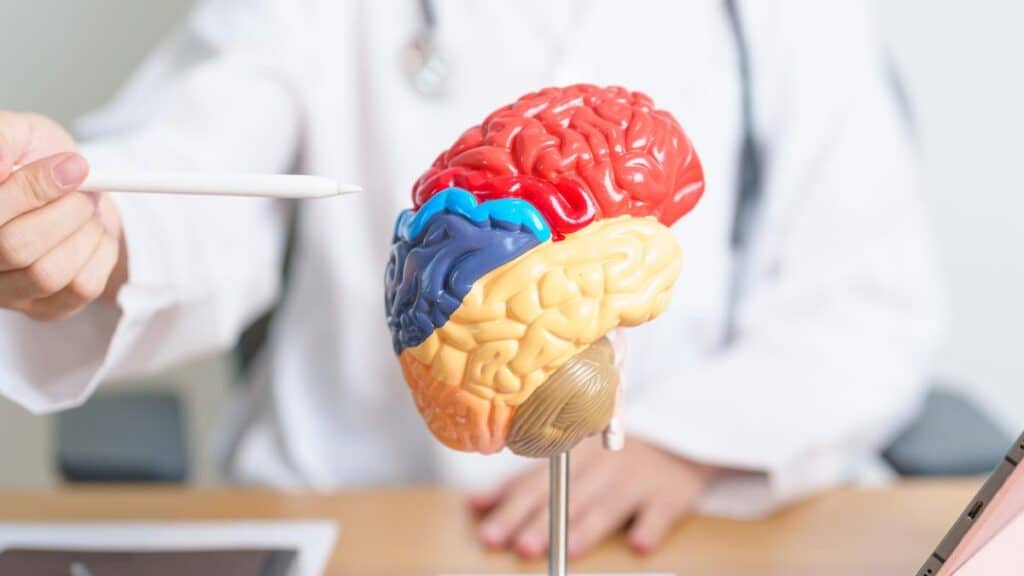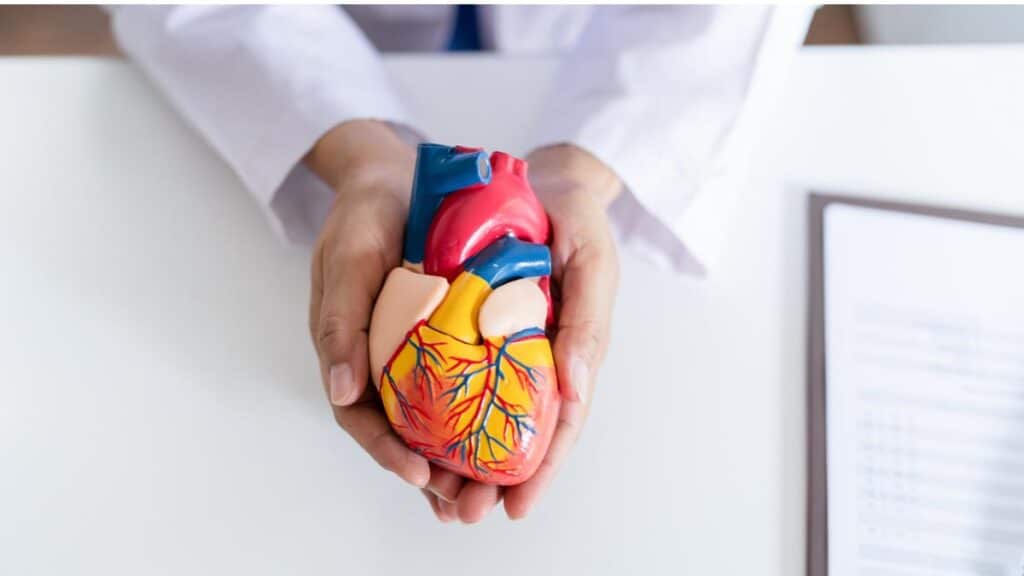Fasting, an age-old practice rooted in various cultural and religious traditions, has garnered significant attention in the health and fitness community for its potential benefits on physical and mental well-being. This comprehensive guide delves into the health benefits of fasting, optimal timing, frequency, duration, and the organs that benefit most, and addresses concerns and drawbacks associated with fasting.
What is Fasting?
Fasting is a practice that involves voluntarily abstaining from food and drinks, or both, for a specified period. It’s a practice that dates back centuries, used for religious, spiritual, health, and lifestyle reasons. In recent years, fasting has gained popularity as a means to improve health, manage weight, and enhance longevity. There are several types of fasting, each with its own set of rules and durations. Here’s a brief overview:
Types of Fasting
- Intermittent Fasting (IF): This involves cycling between periods of eating and fasting. Common patterns include daily 16-hour fasts or fasting for 24 hours twice per week.
- Time-Restricted Feeding (TRF): A form of IF where eating is limited to a certain number of hours each day, such as an 8-hour eating window followed by a 16-hour fast.
- Alternate-Day Fasting (ADF): This involves alternating days of no food intake or significantly reduced calorie intake with days of eating normally.
- Periodic Fasting: This can involve fasting for several consecutive days, often ranging from 2 to 7 days, followed by a period of normal eating before possibly fasting again.
- Religious Fasting: Many religions practice fasting, including Islam’s Ramadan, Christianity’s Lent, and Judaism’s Yom Kippur. The rules and durations vary widely.
Mechanisms and Benefits
Fasting works through several mechanisms to impact health:
- Metabolic Switching: Transitioning from using glucose as the primary energy source to fat breakdown and ketone production can aid in weight loss and improve metabolic health.
- Cellular Autophagy: Promoting the removal of damaged cells and regeneration of new ones, contributing to cellular repair and longevity.
- Improved Insulin Sensitivity: Reducing blood sugar levels and lowering the risk of type 2 diabetes.
- Reduction in Inflammation and Oxidative Stress: Contributing to decreased risk of chronic diseases and improved health outcomes.
- Enhanced Health: Supporting neurogenesis and protecting against neurodegenerative diseases.
In summary, fasting is a versatile and ancient practice with many health benefits, from weight management to improved metabolic health. The key to successful fasting lies in choosing a method that aligns with your lifestyle, health status, and goals, ensuring a sustainable and beneficial approach to health and well-being.
Health Benefits of Fasting
Fasting offers many health benefits, supported by scientific research and anecdotal evidence. These benefits include:
- Weight Loss and Improved Metabolism: Fasting can lead to weight loss by promoting a calorie deficit and enhancing hormone function to facilitate weight loss.
- Enhanced Brain Function: It is linked to improved brain health, potentially reducing the risk of neurodegenerative diseases.
- Detoxification and Improved Organ Health: Fasting allows the body to initiate cellular repair processes, including autophagy, where cells remove and recycle damaged components.
- Improved Insulin Sensitivity: It can help lower blood sugar levels, reducing the risk of type 2 diabetes.
- Increased Longevity: Some studies suggest that fasting can extend lifespan, although more research is needed.
Organs That Benefit Most from Fasting
The organs that benefit the most from fasting also account for more than 51% of your metabolism. Therefore, fasting not only improves your organs but also your metabolism, which makes it easy to manage your health and fitness.

Kidneys
Fasting can positively impact kidney health through several mechanisms, offering potential benefits for preventing and managing kidney-related issues. Here’s how fasting helps the kidneys:
1. Promotes Autophagy
- Mechanism: Autophagy is the body’s way of cleaning out damaged cells to regenerate newer, healthier cells. Fasting activates autophagy, including removing toxins and damaged cells from the body.
- Benefit for Kidneys: This process benefits the kidneys as it helps eliminate damaged cells and protein aggregates, potentially reducing the risk of kidney diseases.
2. Reduces Blood Pressure
- Mechanism: Fasting has been shown to lower blood pressure by improving heart health and reducing inflammation. High blood pressure is a significant risk factor for chronic kidney disease.
- Benefit for Kidneys: By lowering blood pressure, fasting can reduce the strain on the kidneys, helping to protect them from damage and improving their function.
3. Improves Blood Sugar Control
- Mechanism: Fasting improves insulin sensitivity and lowers blood sugar levels, which is beneficial for preventing and managing diabetes—a significant risk factor for kidney disease.
- Benefit for Kidneys: Better blood sugar control helps prevent diabetic kidney disease, a common complication of diabetes where the effects of high blood sugar damage the kidneys.
4. Aids in Weight Loss and Reduces Obesity
- Mechanism: Fasting can lead to weight loss by creating a calorie deficit and improving metabolic rate.
- Benefit for Kidneys: Obesity is a risk factor for chronic kidney disease. Weight loss can reduce the fat around the kidneys, decrease blood pressure, and lessen the risk of developing kidney disease.
5. Decreases Inflammation
- Mechanism: Fasting has been shown to reduce markers of inflammation in the body. Chronic inflammation can contribute to the development and progression of kidney disease.
- Benefit for Kidneys: By reducing systemic inflammation, fasting may help protect the kidneys from chronic diseases and improve overall kidney health.
6. Enhances Overall Health
- Mechanism: Beyond direct effects, fasting improves overall health by enhancing cardiovascular health, reducing the risk of metabolic syndrome, and improving lipid profiles.
- Benefit for Kidneys: Kidney health is closely linked to cardiovascular and metabolic health; improving these areas can indirectly benefit kidney function and reduce the risk of kidney disease.
Considerations and Precautions
While fasting offers potential benefits for kidney health, it’s vital for individuals with existing kidney conditions or those at high risk for kidney disease to approach fasting cautiously.
Fasting can alter fluid and electrolyte balance, which can be particularly concerning for those with compromised kidney function. It’s crucial to consult with a healthcare professional before starting any fasting regimen, especially for individuals with kidney issues, to ensure that fasting is done safely and appropriately.
In summary, fasting can support kidney health through autophagy, improved blood pressure and blood sugar control, weight management, and reduced inflammation. However, personal health status should guide the decision quickly, with professional guidance ensuring safety and effectiveness.

Brain
Fasting profoundly impacts brain health and function, offering a range of benefits from enhanced cognitive performance to a reduced risk of neurodegenerative diseases. The mechanisms through which fasting benefits the brain are multifaceted and involve complex physiological processes. Here’s an overview of how fasting helps the brain:
1. Promotes Neurogenesis
- Mechanism: Fasting increases the production of brain-derived neurotrophic factor (BDNF), a protein that plays a crucial role in neuron growth and the formation of new neural connections.
- Benefit for Brain: Higher levels of BDNF enhance learning, memory, and cognitive function. Additionally, BDNF can protect brain cells from damage and support the survival of existing neurons.
2. Enhances Brain Function
- Mechanism: Fasting improves cognitive function and resilience to stress by inducing ketosis, a metabolic state in which the body uses ketones for fuel instead of glucose. Ketones are a more efficient energy source for the brain and have been shown to enhance cognitive performance, focus, and mental clarity.
- Benefit for Brain: The shift to ketone metabolism during fasting can improve mental clarity, concentration, and overall brain function.
3. Reduces Inflammation
- Mechanism: Fasting reduces the levels of pro-inflammatory cytokines in the body, which are linked to chronic inflammation and have been implicated in the development of neurodegenerative diseases.
- Benefit for the Brain: Lowering inflammation in the brain can protect against neurodegenerative diseases like Alzheimer’s and Parkinson’s disease and improve mood and cognitive function.
4. Decreases Oxidative Stress
- Mechanism: Fasting increases the resistance of neurons to stress by enhancing the capacity of brain cells to repair DNA and by increasing the production of antioxidants, which neutralize harmful free radicals.
- Benefit for the Brain: Reducing oxidative stress in the brain can prevent damage to brain cells and is associated with a lower risk of neurodegenerative diseases and improved cognitive function.
5. Improves Metabolic Health
- Mechanism: Fasting improves insulin sensitivity, reduces blood sugar levels, and decreases the risk of metabolic syndrome, all of which benefit brain health.
- Benefit for the Brain: Improved metabolic health supports brain function and reduces the risk of cognitive decline and diseases such as Alzheimer’s, often called “type 3 diabetes,” due to its link with insulin resistance in the brain.
6. May Extend Lifespan
- Mechanism: Fasting triggers cellular repair processes and can extend the lifespan of organisms in scientific studies. While the exact mechanisms are still being researched, the effects likely include improved metabolic health and reduced oxidative stress and inflammation.
- Benefit for the Brain: A longer lifespan is associated with prolonged brain health and a reduced incidence of age-related neurodegenerative diseases.
Considerations and Precautions
Despite the promising benefits of fasting for brain health, it’s essential to approach fasting with caution, especially for individuals with pre-existing health conditions or those who are pregnant, breastfeeding, or have a history of eating disorders. Consulting with a healthcare professional before starting any fasting regimen is crucial to ensure it’s appropriate for your health needs.
In summary, fasting offers multiple benefits for brain health, including enhanced cognitive function, reduced risk of neurodegenerative diseases, and improved mood and mental clarity. These effects are mediated through increased BDNF production, reduced inflammation, and improved metabolic health, making fasting a potentially powerful tool for maintaining and improving brain health.

Liver
Fasting significantly impacts liver health, offering benefits from its ability to induce various physiological changes. These changes can help prevent and manage liver diseases, improve liver function, and enhance the liver’s ability to detoxify the body. Here’s how fasting benefits the liver:
1. Promotes Fat Metabolism and Reduces Liver Fat
- Mechanism: During fasting, the body shifts from using glucose to fatty acids and ketones for energy. This metabolic switch promotes the breakdown of fats, including the mobilization of fat stored in the liver.
- Benefit for Liver: Reducing liver fat content is crucial for combating non-alcoholic fatty liver disease (NAFLD), a common condition characterized by excessive fat accumulation in the liver. Fasting can help reverse NAFLD and improve liver function.
2. Enhances Autophagy
- Mechanism: Fasting activates autophagy, a cellular “clean-up” process where the body digests and removes damaged cells and cellular components. This process is essential for maintaining cellular health and function.
- Benefit for Liver: Autophagy helps remove damaged cells, protein aggregates, and lipid droplets, improving liver health and function. Enhanced autophagy is particularly beneficial in preventing liver diseases and aiding in the recovery of liver tissue after damage.
3. Improves Insulin Sensitivity
- Mechanism: Fasting improves insulin sensitivity, which helps regulate blood sugar levels more effectively. Insulin resistance is a crucial factor in developing NAFLD and type 2 diabetes.
- Benefit for Liver: By improving insulin sensitivity, fasting reduces the risk of NAFLD and helps manage existing liver conditions. Better insulin regulation also means less fat accumulation in the liver, protecting against liver disease.
4. Reduces Inflammation
- Mechanism: Fasting has been shown to reduce levels of inflammation in the body. Chronic inflammation is a contributor to liver damage and the progression of liver diseases.
- Benefit for Liver: Lowering inflammation helps protect the liver from chronic diseases such as hepatitis and cirrhosis. It also supports the liver’s healing process, improving overall liver health.
5. Decreases Oxidative Stress
- Mechanism: Fasting increases the production of antioxidants and enhances the body’s ability to combat oxidative stress, which is the imbalance between free radicals and antioxidants in the body.
- Benefit for Liver: Oxidative stress is implicated in liver damage and the progression of liver diseases. By reducing oxidative stress, fasting can help protect the liver from damage and support liver regeneration.
6. Aids in Weight Loss
- Mechanism: Fasting can lead to weight loss by creating a caloric deficit. Excess body weight, especially obesity, is a significant risk factor for the development of liver diseases, including NAFLD.
- Benefit for Liver: Weight loss, particularly visceral fat reduction, decreases the risk of developing liver disease and can improve outcomes for individuals with existing liver conditions.
Considerations and Precautions
While fasting offers numerous benefits for liver health, it’s important to approach it cautiously, especially for individuals with existing liver conditions or other health issues. Fasting can be challenging for the liver in cases of severe liver disease, and it’s crucial to consult with a healthcare professional before starting any fasting regimen. Tailoring the approach to individual health status and needs ensures that fasting is safe and beneficial for liver health.
In summary, fasting supports liver health by promoting fat metabolism, enhancing autophagy, improving insulin sensitivity, reducing inflammation and oxidative stress, and aiding in weight loss. These effects contribute to preventing and managing liver diseases, making fasting a valuable tool for maintaining liver health.

Gut
Fasting offers several benefits for gut health, influencing the gastrointestinal system’s structure and function in ways that can lead to improved digestion, enhanced gut barrier function, and a healthier gut microbiome. Here’s how fasting benefits the gut:
1. Improves Gut Microbiome Diversity
- Mechanism: Fasting can alter the composition of the gut microbiota, the community of microbes living in the digestive tract. Changes in feeding patterns during fasting periods can encourage the growth of beneficial bacteria while suppressing harmful ones.
- Benefit for Gut: A diverse and balanced gut microbiome is crucial for digestive health, immune function, and mental health. Fasting can help restore balance to the gut microbiota, leading to improved overall health.
2. Enhances Intestinal Barrier Function
- Mechanism: Fasting has been shown to strengthen the intestinal barrier, which is the lining of the intestines that prevents harmful substances and pathogens from leaking into the bloodstream.
- Benefit for Gut: A stronger intestinal barrier reduces the risk of leaky gut syndrome, a condition associated with many chronic health issues, including inflammation, autoimmune diseases, and allergies.
3. Promotes Autophagy in Gut Cells
- Mechanism: Similar to its effects in other organs, fasting induces autophagy in gut cells. Autophagy is a cellular clean-up process that removes damaged cells and parts of cells, helping to maintain cell health.
- Benefit for Gut: By promoting autophagy in the gut, fasting helps remove damaged and dysfunctional cells, potentially reducing the risk of gastrointestinal diseases, including cancer.
4. Reduces Inflammation
- Mechanism: Fasting can decrease levels of inflammation throughout the body, including the gut. Chronic inflammation in the gut is linked to various gastrointestinal disorders, such as inflammatory bowel disease (IBD), irritable bowel syndrome (IBS), and colorectal cancer.
- Benefit for Gut: Lowering inflammation helps manage and prevent inflammatory gut conditions, improving gut health and function.
5. Gives the Digestive System a Break
- Mechanism: Fasting provides a period of rest for the digestive system, reducing the workload on the stomach, intestines, and other digestive organs.
- Benefit for Gut: This rest period can help heal and repair the digestive tract, improving digestion and nutrient absorption. It can also alleviate symptoms of digestive disorders, such as bloating, gas, and discomfort.
6. May Improve Gastrointestinal Symptoms
- Mechanism: By altering gut microbiota composition, enhancing gut barrier function, and reducing inflammation, fasting can help alleviate symptoms associated with gastrointestinal disorders, such as IBD and IBS.
- Benefit for Gut: Individuals with these conditions may experience reduced symptoms, including less abdominal pain, improved bowel habits, and a decrease in the severity of flare-ups.
Considerations and Precautions
While fasting has potential benefits for gut health, it’s not suitable for everyone. Individuals with certain health conditions, such as gastrointestinal disorders, should approach fasting with caution and consult with a healthcare professional before starting. It’s also important to ensure that fasting is balanced and mindful to avoid potential negative effects on gut health, such as those that might arise from nutrient deficiencies or disordered eating patterns.
In summary, fasting can support gut health by improving microbiome diversity, enhancing intestinal barrier function, promoting cellular clean-up, reducing inflammation, and giving the digestive system a rest. These benefits contribute to a healthier gut, foundational to overall health and well-being.

Heart
Fasting has been shown to offer numerous benefits for heart health, impacting cardiovascular risk factors and mechanisms that can lead to improved heart function and a reduced risk of heart disease. Here’s how fasting benefits the heart:
1. Improves Lipid Profile
- Mechanism: Fasting can significantly affect blood lipid levels, including reductions in total cholesterol, low-density lipoprotein (LDL) cholesterol, and triglycerides, as well as increases in high-density lipoprotein (HDL) cholesterol. These changes are associated with the body’s shift to fat metabolism during fasting periods.
- Benefit for Heart: Improving the lipid profile reduces the risk of plaque buildup in the arteries (atherosclerosis), a major risk factor for heart disease and stroke.
2. Lowers Blood Pressure
- Mechanism: Fasting can lead to reductions in blood pressure. This effect may be due to weight loss, improved arterial function, and hormonal changes during fasting, which help regulate blood pressure levels.
- Benefit for the Heart: Lower blood pressure reduces the strain on the heart and decreases the risk of heart disease, including heart failure, stroke, and heart attack.
3. Reduces Inflammatory Markers
- Mechanism: Fasting has been shown to decrease levels of inflammation in the body, as evidenced by reductions in inflammatory markers such as C-reactive protein (CRP), interleukin-6 (IL-6), and tumor necrosis factor-alpha (TNF-α).
- Benefit for Heart: Chronic inflammation is a key contributor to the development of heart disease. By reducing inflammation, fasting can help protect against cardiovascular disease.
4. Enhances Autophagy
- Mechanism: Fasting induces autophagy, a cellular clean-up process that removes damaged cells and cellular components. This process is crucial for maintaining cellular health and function.
- Benefit for the Heart: Autophagy plays a role in preventing the accumulation of damaged cells and tissues in the heart, thereby reducing the risk of heart disease and improving heart function.
5. Improves Blood Sugar Control
- Mechanism: Fasting improves insulin sensitivity and lowers blood sugar levels, which is beneficial for preventing and managing diabetes—a major risk factor for heart disease.
- Benefit for the Heart: Better blood sugar control helps prevent the development of diabetic complications that can affect the heart, such as diabetic cardiomyopathy and coronary artery disease.
6. Promotes Weight Loss
- Mechanism: Fasting can lead to weight loss by creating a caloric deficit and enhancing hormone function related to metabolism and fat loss.
- Benefit for the Heart: Weight loss, especially the reduction of visceral fat around the abdomen, decreases the risk of heart disease by improving cardiovascular risk factors such as blood pressure, lipid levels, and insulin sensitivity.
Considerations and Precautions
While fasting offers potential benefits for heart health, it’s important to approach it cautiously, especially for individuals with existing heart conditions or those taking medications for blood pressure or blood sugar. Changes in diet and fasting regimens can affect medication requirements and cardiovascular stability. It’s crucial to consult with a healthcare professional before starting any fasting regimen to ensure it’s safe and appropriate for your individual health needs.
In summary, fasting can support heart health by improving the lipid profile, lowering blood pressure, reducing inflammation, enhancing autophagy, improving blood sugar control, and promoting weight loss. These effects contribute to a reduced risk of heart disease and improved overall cardiovascular health.
Best Time, Frequency, and Duration to Fast
- Best Time to Fast: The optimal time to fast depends on individual schedules and body rhythms. Many succeed with overnight fasting, starting after dinner and extending until breakfast or lunch the next day.
- Frequency: Intermittent fasting, such as the 16/8 method (fasting for 16 hours and eating within an 8-hour window), can be practiced daily. Longer fasts, like 24-48 hours, should be less frequent, perhaps once a month, based on individual tolerance and health goals.
- Duration: The duration of a fast can vary widely, from 12 hours to several days. Beginners should start with shorter fasts and gradually increase the duration as their body adapts.
Breakfast plays a significant role in fasting, particularly in intermittent fasting regimens, where the timing of meals can directly influence the fasting period’s effectiveness and overall health benefits. The relationship between breakfast and fasting revolves around the timing of the day’s first meal, which marks the end of the nightly fasting period and sets the tone for the day’s eating patterns. Here’s how breakfast relates to fasting:
1. Breaking the Fast
- Concept: Traditionally, breakfast is considered the meal that “breaks the fast” after the overnight period without eating. In intermittent fasting, breakfast timing can vary significantly depending on the specific fasting schedule.
- Impact: The timing of breakfast determines the length of the fasting period. For example, delaying breakfast until noon in a 16/8 intermittent fasting approach results in a 16-hour fast, while an earlier breakfast shortens the fasting window.
2. Influences Metabolic Processes
- Mechanism: The first meal of the day kick-starts metabolic processes, including digestion, absorption, and the shift from a fasting state, where the body utilizes stored energy, to a fed state, where the body processes the nutrients from food.
- Impact: The breakfast composition can influence insulin sensitivity, blood sugar levels, and the metabolic switch between glucose and fat as primary energy sources. A nutritious breakfast can help stabilize blood sugar levels, and support sustained energy throughout the day.
3. Affects Hunger and Satiety Hormones
- Mechanism: Eating breakfast influences the release of hunger and satiety hormones, such as ghrelin and leptin. These hormones play a crucial role in regulating appetite throughout the day.
- Impact: A well-balanced breakfast can help manage appetite and prevent overeating later in the day, which is beneficial for weight management and metabolic health, aligning with the goals of many fasting regimens.
4. Determines Fasting Frequency and Duration
- Mechanism: The choice to include or skip breakfast directly affects the frequency and duration of fasting periods. For instance, skipping breakfast can extend the fasting window, potentially enhancing fasting-related benefits such as improved insulin sensitivity and increased fat burning.
- Impact: Individuals practicing intermittent fasting may skip breakfast to extend their fasting period, while others may have an early breakfast to shorten the fast, depending on their health goals, lifestyle, and how their body responds to fasting.
5. Personalization and Flexibility
- Concept: The role of breakfast in fasting is highly individual. Some people thrive on skipping breakfast and extending their fasting window, while others may need a morning meal for optimal energy, concentration, and metabolic health.
- Impact: Personal preferences, lifestyle, health goals, and individual responses to fasting should guide the decision on when and what to eat for breakfast. This flexibility allows individuals to tailor fasting regimens to fit their needs, making it a sustainable and effective approach to health and wellness.
Considerations
It’s important to note that while fasting and the timing of breakfast can offer health benefits, the quality of the first meal is equally crucial. A nutritious breakfast that includes a balance of proteins, healthy fats, and fiber can support health goals and enhance the benefits of the fasting period.
In summary, breakfast’s relationship with fasting is pivotal, influencing the fasting window’s length, metabolic health, appetite regulation, and the personalization of fasting regimens to suit individual health goals and lifestyles.
Breaking a fast properly is crucial to maximize the health benefits of fasting while minimizing potential digestive discomfort or adverse effects. The best foods to break a fast are easily digestible, nutrient-dense, and gentle on the stomach. Here’s a guide to the best foods to consider when breaking a fast:
Best Foods After Fasting
1. Hydrating Foods
- Examples: Watermelon, cucumber, oranges, and other fruits and vegetables with high water content.
- Benefits: These foods help rehydrate the body and provide a gentle way to introduce food back into your diet. They’re also rich in vitamins, minerals, and antioxidants.
2. Lean Proteins
- Examples: Chicken breast, fish, tofu, and legumes.
- Benefits: Lean proteins are essential for repairing and building tissues. They provide essential amino acids without overburdening the digestive system.
3. Healthy Fats
- Examples: Avocado, nuts, seeds, and olive oil.
- Benefits: Healthy fats are crucial for hormone production and the absorption of fat-soluble vitamins. They should be introduced slowly to avoid digestive discomfort.
4. Whole Grains
- Examples: Quinoa, oats, and brown rice.
- Benefits: Whole grains provide complex carbohydrates for sustained energy, along with fiber, vitamins, and minerals. They help stabilize blood sugar levels after a period of fasting.
5. Fermented Foods
- Examples: Yogurt, kefir, sauerkraut, and kimchi.
- Benefits: Fermented foods are rich in probiotics, which can help restore the gut microbiome and aid digestion. They’re particularly beneficial after longer fasts.
6. Bone Broth
- Examples: Broth made from chicken, beef, or vegetables.
- Benefits: Bone broth is soothing for the digestive system and provides hydration, minerals, and amino acids. It’s a gentle option for reintroducing nutrients to the body.
7. Soft Cooked Vegetables
- Examples: Steamed carrots, zucchini, and beets.
- Benefits: Soft-cooked vegetables are easier to digest than raw ones and provide essential nutrients and fiber, which can help regulate digestion after fasting.
Tips for Breaking a Fast:
- Start Small: Begin with a small portion and wait 20-30 minutes before consuming more food. This approach helps prevent overloading the digestive system.
- Chew Thoroughly: Eating slowly and chewing well can aid digestion and absorption of nutrients.
- Listen to Your Body: Pay attention to how your body responds to different foods and adjust accordingly. If certain foods cause discomfort, it may be best to introduce them more gradually.
Foods to Avoid Immediately After Fasting:
- High-Sugar Foods: These can cause rapid spikes in blood sugar levels.
- Processed Foods: Often contain additives and preservatives that can be hard on the digestive system.
- High-Fat Foods: Especially those high in saturated fats, which can be difficult to digest and may cause discomfort.
Breaking a fast with the right foods can help you reap the full benefits of your fasting period, supporting overall health, wellness, and digestive comfort.
Concerns and Drawbacks
While fasting offers numerous health benefits, it’s not suitable for everyone. Individuals with certain health conditions, pregnant or breastfeeding women, and those with a history of eating disorders should consult healthcare professionals before starting a fasting regimen. Listening to your body and adapting fasting practices to fit individual health needs and goals is important. While fasting offers numerous benefits, it’s not without its drawbacks and concerns, including:
- Nutrient Deficiencies: Extended periods of fasting can lead to deficiencies in essential vitamins and minerals.
- Eating Disorders: Fasting can trigger disordered eating patterns in susceptible individuals.
- Energy Levels and Mood Swings: Some may experience fatigue, irritability, or mood swings during fasting.
Mitigating Concerns
To address these concerns, consider the following strategies:
- Consult a Healthcare Professional: Before starting any fasting regimen, especially for individuals with pre-existing health conditions.
- Gradual Start: Begin with shorter fasting periods and gradually increase the duration.
- Balanced Diet: Ensure a nutrient-rich diet during eating periods to prevent deficiencies.
- Listen to Your Body: Pay attention to how your body responds to fasting and adjust accordingly.
Conclusion
When practiced mindfully and in moderation, fasting can be a powerful tool for enhancing health and wellness. By understanding the optimal timing, frequency, and duration of fasting and the organs that benefit the most, individuals can tailor their fasting practices to fit their unique health goals and lifestyles.
However, it’s crucial to approach fasting cautiously, considering potential drawbacks and consulting with healthcare professionals to ensure it’s a safe and effective strategy for personal health objectives.




